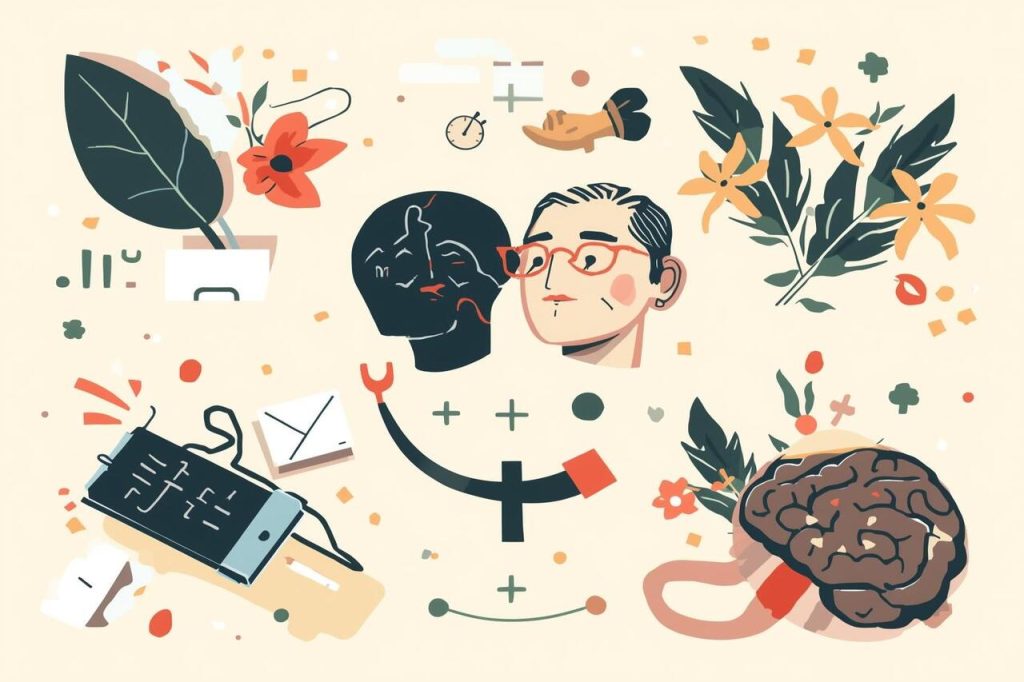5 Warning Toxic Relationship Signs – Your Relationship Is Becoming Toxic 😔🚩

A toxic relationship can slowly drain your happiness and peace of mind. Recognizing the toxic relationship signs early can help you protect your mental health and emotional well-being. 🚩
Why Toxic Relationship Signs Matter
Relationships should lift us up — not break us down over time. When a partnership, family tie, or friendship turns toxic, harm often arrives slowly: a hurtful joke, a quiet control, a tiny betrayal repeated until it becomes the relationship’s pattern. This guide helps you recognise the warning signs early and act with clarity and safety. 🧭
What this piece will help you do
- Recognise five clear warning signs of toxicity.
- Understand why each sign is harmful and what it feels like.
- Get immediate, realistic next steps (safety-first).
- Use simple scripts and strategies to test change or protect yourself.
Read more: 5 Proven Strategies To Resolve Conflicts In Relationships Peacefully
The 5 Warning Toxic Relationship Signs
Below are five high-impact toxic relationship signs. Each point includes what it looks like, how it makes you feel, and what to do next.
1) Constant criticism that chips away at you — not constructive feedback, but personal attacks
At first it might feel like “tough love” or playful sarcasm. Over time, repeated put-downs about your appearance, intelligence, or achievements stop being one-offs and begin to rewrite how you see yourself. This is different from helpful feedback; toxic criticism targets identity, not behavior.
What it looks like: mocking your ideas in front of others, calling you “too sensitive” when you’re hurt, or turning every personal victory into a reason to belittle you. How it affects you: you begin self-editing before you speak, second-guess decisions, and feel drained after conversations. Practical steps: keep a short dated log of hurtful comments, test a calm boundary, and consult a trusted friend or therapist for perspective.
2) Controlling behaviors that limit your freedom — from small rules to big isolation
Control rarely appears as blunt commands at first. It often starts as “I worry when you…” or subtle guilt about plans with friends. Controlling behaviors include monitoring phones, demanding passwords, or gradually cutting off your social network — sometimes framed as care or concern.
What it looks like: guilt-tripping you for time with family, insisting you cancel plans, or checking your messages. How it affects you: you feel watched, anxious, and dependent. Practical steps: reclaim small freedoms (keep a coffee date), build an exit map (safety planning), and contact local support if you feel at risk.
3) Gaslighting and manipulation — making you doubt your memory, your sanity, or your feelings
Gaslighting is psychological manipulation where the other person denies events, rewrites history, or dismisses feelings until you doubt yourself. It can be subtle — “That never happened,” “You’re remembering it wrong,” or blaming you for being dramatic.
What it looks like: they deny conversations you clearly remember or insist you’re the one who misplaces messages. How it affects you: confusion, reduced trust in your memory, and unnecessary apologies. Practical steps: keep records (screenshots, dated notes), discuss patterns with a trusted friend, and consider therapy if gaslighting is persistent.
4) Chronic disrespect for boundaries — small breaches that never stop
Boundaries are essential. When repeatedly ignored — whether it’s privacy, time, money, or emotional limits — the relationship normalises disrespect. Small boundary violations accumulate into resentment and loss of autonomy.
What it looks like: ignoring requests for alone time, discussing sensitive topics publicly despite your wishes, or breaking promises about shared responsibilities. How it affects you: drained, resentful, and taken for granted. Practical steps: state clear boundaries, follow through with consequences, and seek mediation or counseling if necessary.
5) You feel worse more often than you feel good — the joy-to-distress ratio is flipped
Healthy relationships have more positive than negative moments. If interactions leave you exhausted, anxious, or sad more often than comforted, that imbalance is a red flag. Love alone doesn’t justify chronic emotional harm.
What it looks like: leaving time together feeling depleted, apologising often for your feelings, or withdrawing to protect yourself. How it affects you: worsened sleep, motivation, and increased anxiety. Practical steps: keep a mood tally before and after contact for two weeks, prioritise self-care, and consult a professional to decide whether repair is possible.
Read more: 10 Mind-Blowing Benefits Of Emotional Wellness You Didn’t Know
What to do next — clear, safe, practical steps
If you recognise one or more of the toxic relationship signs, use this action plan. Move at your own pace — safety first.
- Collect evidence (private notes, screenshots) for clarity, not to weaponize.
- Talk to someone — a trusted friend, family member, or counselor for perspective and support.
- Set one small boundary and observe the response. Respectful change is hopeful; punishment or gaslighting is data.
- Make a safety plan if you feel threatened—know exit routes, contacts, and resources.
- Consider professional help (individual or couples therapy). Therapy only works if both partners commit to change.
Safety and special notes
If you experience physical violence, sexual coercion, stalking, or severe threats, contact emergency services and local domestic violence resources immediately. If a partner has untreated addiction or a history of violence, seek external help before attempting in-place repairs.
Diving Deeper into Toxic Relationship Signs 🚩
Relationships are meant to bring joy, security, and a sense of belonging ❤️. But when unhealthy dynamics take over,
the warning signals often appear long before a relationship completely breaks down. Understanding these toxic relationship signs
is not only about saving yourself from emotional harm but also about regaining control of your mental, physical, and social well-being.
This extended guide will help you explore the subtle and not-so-subtle ways toxic patterns unfold, so you can identify them early and
choose a healthier path 🌱.
Emotional Exhaustion: When Love Becomes Draining 😓
A healthy relationship should energize you, not drain you. If you find yourself constantly exhausted—mentally, emotionally, or even physically—
it may be a result of toxic relationship signs creeping in. Emotional exhaustion happens when your needs are consistently dismissed,
when communication feels one-sided, or when your partner creates an environment filled with constant negativity. Over time, you may begin
to feel like you’re walking on eggshells, unsure of what will trigger conflict next. This slow drain of energy robs you of joy and peace,
leading to burnout that affects not just your love life but also your career, friendships, and personal growth.
Gaslighting and Manipulation 💡🔥
One of the most harmful toxic relationship signs is gaslighting—a psychological manipulation tactic where your reality is denied or twisted.
A partner may insist that things you clearly remember never happened, making you doubt your own memory or sanity.
They might use phrases like “You’re too sensitive” or “You’re imagining things” to invalidate your feelings.
This slow erosion of self-trust can leave you dependent on your partner for validation, keeping you stuck in a toxic cycle.
Recognizing gaslighting early and naming it for what it is becomes crucial in breaking free from manipulation 🚪.
Control and Isolation 🛑
Another deep red flag is excessive control. Toxic partners may attempt to monitor your movements, your finances, or even your friendships.
They might insist on knowing where you are at all times or subtly discourage you from spending time with friends and family.
Over time, this isolates you from your support system, making it harder to escape the toxic environment.
Remember: true love never demands complete control. It celebrates independence and individuality while fostering connection.
Spotting this toxic relationship signs early can save you years of feeling trapped behind invisible bars.
Verbal Abuse and Constant Criticism 🗣️💔
Toxic relationships are often built on words that cut deep. Whether it’s yelling, constant put-downs, or subtle sarcastic remarks,
verbal abuse leaves scars that are invisible yet long-lasting. Criticism in a healthy relationship is constructive, focused on behaviors,
and delivered with love. In toxic dynamics, criticism becomes a weapon designed to tear down your confidence and self-worth.
Over time, you may internalize these negative messages and begin to doubt your own value. This pattern makes breaking free even harder,
which is why acknowledging these toxic relationship signs is so vital 🚩.
Jealousy and Distrust 🔒
A certain level of jealousy is normal, but in toxic relationships, jealousy becomes suffocating.
It might look like constant accusations of cheating, questioning your every action, or demanding access to your phone and social media.
Instead of fostering trust, this creates a hostile environment where you feel you must constantly prove your loyalty.
This insecurity reflects not your shortcomings but your partner’s inability to manage their own fears.
Persistent jealousy is one of the most recognizable toxic relationship signs and should never be brushed aside as “love.”
Read more: 8 Secrets To Maintaining Emotional Wellness During Tough Times
Impact on Mental Health 🧠
Toxic relationships don’t just stay in the emotional realm—they take a serious toll on your mental health.
Prolonged exposure to manipulation, criticism, and control can trigger anxiety, depression, and even trauma responses.
Many people report feeling trapped, hopeless, or unworthy of love after enduring such dynamics for too long.
The constant stress weakens your nervous system, making it harder to focus, sleep, or enjoy life’s simple pleasures.
Identifying toxic relationship signs early gives you the chance to protect your mental health and invest in your healing journey.
How Toxic Patterns Affect Physical Health 🩺
Believe it or not, your body also carries the burden of toxic love. Chronic stress from a toxic relationship often manifests in headaches,
digestive issues, high blood pressure, or weakened immunity. Your body responds to toxic relationship signs with a fight-or-flight response,
leaving you in a constant state of hypervigilance. Over time, this can contribute to serious illnesses, proving that your relationship is
not “just emotional.” Health is holistic—mind, body, and soul—and staying in toxic dynamics compromises every part of your well-being 🌍.
Breaking Free from Toxic Love 🔓
Recognizing toxic relationship signs is the first step toward reclaiming your life.
But awareness alone isn’t enough—you must take actionable steps to protect yourself. This may include setting firm boundaries,
seeking support from friends and family, or working with a therapist. In some cases, leaving the relationship entirely is the healthiest choice,
even if it feels terrifying. Remember, letting go of toxic love is not failure—it’s a powerful act of self-respect and courage 💪.
Steps Toward Healing and Recovery 🌈
Once you’ve distanced yourself from toxic patterns, the healing process begins.
This often involves rebuilding your sense of self-worth, learning to trust again, and engaging in activities that restore your joy.
Journaling, meditation, and support groups can help you process emotions while reminding you that you are not alone.
Surround yourself with people who uplift you, and never be afraid to seek professional help when needed.
Healing is not linear, but each step forward is proof that life beyond toxicity is possible and beautiful ✨.
Building Healthier Future Relationships 🌱
Identifying toxic relationship signs also equips you with tools to create healthier relationships in the future.
You’ll learn the importance of communication, respect, and boundaries. Instead of repeating old patterns, you can choose partners who
support your growth and happiness. Remember, love should never feel like a battlefield—it should be a safe space where both partners thrive.
With patience and self-awareness, you can break the cycle of toxicity and invite genuine love into your life ❤️.
Strengthening Your Awareness of Toxic Relationship Signs 🌟
Awareness is the key to freedom. Recognizing toxic relationship signs early allows you to prevent emotional damage before it becomes entrenched.
This means noticing not just overt conflict, but also subtle behaviors—like constant guilt-tripping, passive-aggressive comments, or emotional withholding—that may seem small but accumulate over time.
By tuning in to your feelings and instincts, you can protect your emotional wellness and make conscious choices about your relationships 💡.
Listening to Your Intuition 🧭
Your gut feelings are often the first signal that something is wrong. If you frequently feel uneasy, anxious, or stressed around someone you love, take it seriously.
Toxic dynamics often mask themselves as care, concern, or even love, but your intuition rarely lies. Recognizing these subtle toxic relationship signs can prevent long-term psychological harm and help you reclaim your inner peace.
Recognizing Patterns Over Time ⏳
Isolated incidents happen in every relationship, but recurring negative behaviors are a warning. Look for patterns where criticism, control, or manipulation repeats.
Consistent exposure to such behaviors is what makes a relationship toxic. Documenting incidents or journaling your experiences can provide clarity and reinforce your awareness of these toxic relationship signs 🚩.
This clarity is essential for making informed decisions about your next steps.
Emphasizing Personal Boundaries 🛡️
Strong personal boundaries are your shield against toxicity. By clearly stating what you will and will not tolerate, you set the tone for how others treat you.
When a partner repeatedly disregards these boundaries, it’s a critical toxic relationship signs that shouldn’t be ignored.
Boundaries are a form of self-respect and help maintain emotional health, ensuring you don’t get trapped in harmful patterns.
Self-Reflection and Emotional Resilience 🌈
Taking time to reflect on your emotions and responses builds resilience. Journaling, meditation, or talking with a trusted friend can help you process experiences and validate your feelings.
This strengthens your ability to identify toxic relationship signs and respond in ways that protect your well-being. Emotional resilience also prepares you to create healthier connections in the future.
Building Support Networks 🤝
No one should face toxicity alone. Friends, family, mentors, or professional counselors provide perspective and guidance.
Discussing your experiences can illuminate patterns you might have missed and reinforce your recognition of toxic relationship signs.
Support networks also offer encouragement and practical help if you decide to take steps to change or leave a toxic dynamic.
Investing in Your Growth 🌱
Every experience in a toxic relationship, painful as it may be, can be a learning opportunity. Recognizing toxic relationship signs teaches you about your boundaries, your needs, and the kind of love you truly deserve.
Investing time in personal development, self-care, and emotional literacy ensures you carry these lessons forward, preventing repetition of harmful patterns and fostering healthier future relationships 💖.
Ultimately, understanding and internalizing these additional insights strengthens your ability to protect yourself and thrive.
Awareness, intuition, boundaries, reflection, and support together create a robust framework for recognizing toxic relationship signs early, making empowered choices, and reclaiming your emotional wellness 🌟.
Read more: 6 Ways To Support A Partner Struggling With Emotional Wellness
The Importance of Self-Love 💕
At the heart of every healing journey lies self-love. Toxic relationships often chip away at your self-esteem,
making you forget how worthy you are of real, healthy love. Practicing self-love—through affirmations,
pursuing hobbies, or simply setting aside time for yourself—is essential to recovery.
The more you nurture yourself, the stronger your boundaries become, ensuring you’ll never ignore toxic relationship signs again.
Remember: walking away from toxicity is not the end of your story. It’s the beginning of a more empowered,
fulfilling chapter where you value yourself enough to demand respect, kindness, and genuine care in all your relationships 🌟.
FAQs
What is the difference between a rough patch and a toxic relationship?
A toxic relationship is defined by repeated patterns that harm your emotional wellbeing — not isolated fights. It involves manipulation, chronic disrespect, control, and emotional depletion.
Can a toxic relationship become healthy again?
Sometimes — but only when the person causing harm acknowledges the pattern, takes responsibility, and commits to real change, often with therapy. Both partners must agree to repair work and set strong boundaries.
Is it gaslighting or am I overreacting?
Gaslighting involves repeated denial of facts or feelings. If your perceptions are consistently dismissed and replaced by the other person’s narrative, it may be gaslighting.
What if I love them but the relationship is toxic?
Loving someone doesn’t make harm acceptable. Protect your wellbeing first; love can coexist with firm boundaries or the choice to leave.
When should I leave?
If you’re unsafe physically, sexually, or feel coerced — seek safety immediately. If the relationship repeatedly disrespects core boundaries and leaves you chronically worse-off, leaving is a valid and healthy choice.
Final thoughts

Spotting toxic relationship signs is the first brave step toward protecting your mental and emotional health. Small actions — a boundary, an honest conversation, a mood tally — give clarity. Surround yourself with steady people who help you see yourself clearly. Choosing your wellbeing is compassionate and wise.
For deeper insights on emotional wellness and identifying toxic relationship signs, check out this detailed guide:
Psychology Today – Relationships 🧠
Learn practical strategies to protect yourself and strengthen your boundaries against toxic relationship signs by visiting:
Healthline – Toxic Relationships 💡



Pingback: Top 10 proven Communication Hacks for Relationships That Work